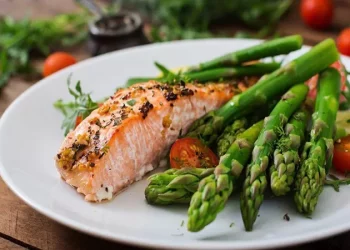Managing diabetes effectively requires strict dietary control, as certain foods can cause dangerous spikes in blood sugar levels. Consistently high glucose levels can lead to severe complications, including nerve damage, cardiovascular disease, and kidney problems. Therefore, understanding which foods to avoid is essential for maintaining stable blood sugar and overall health. This article provides a detailed guide on the worst food choices for diabetics, explaining their harmful effects and suggesting healthier alternatives.
Sugary Beverages
Sugary drinks are one of the most harmful choices for diabetics because they contain high amounts of fast-absorbing sugars. Sodas, sweetened teas, and fruit juices rapidly increase blood glucose levels, putting stress on insulin production. Even drinks marketed as “healthy,” such as vitamin waters or sports drinks, often contain hidden sugars. Instead, diabetics should opt for water, unsweetened herbal teas, or sparkling water with a splash of lemon for flavor.
Refined Carbohydrates
Foods made with white flour, such as white bread, pasta, and pastries, lack fiber and are quickly broken down into glucose. This leads to sharp blood sugar spikes, followed by crashes that can trigger cravings for more carbs. Whole-grain alternatives, like whole wheat bread or quinoa, digest more slowly, providing steady energy without drastic glucose fluctuations.
Processed Snacks
Many packaged snacks, including chips, crackers, and pretzels, are high in refined carbohydrates and unhealthy fats. Even seemingly healthy options like granola bars often contain added sugars or syrups. Instead, diabetics should choose snacks rich in protein and healthy fats, such as nuts, seeds, or sliced vegetables with hummus.
Fried Foods
Fried foods, such as French fries, fried chicken, and doughnuts, are particularly dangerous for diabetics. They combine refined carbohydrates with unhealthy trans fats, which increase inflammation and insulin resistance. Baking, grilling, or air-frying foods with healthier oils, such as olive or avocado oil, is a much better option.
High-Sugar Fruits
While fruits are generally healthy, some have high glycemic indexes that can raise blood sugar quickly. Mangoes, grapes, and overripe bananas contain concentrated sugars, and dried fruits are even worse due to their lack of water content. Berries, apples, and pears are better choices because they have lower sugar content and more fiber.
Full-Fat Dairy with Added Sugars
Dairy products like flavored yogurts, sweetened condensed milk, and ice cream often contain added sugars that can disrupt blood sugar control. Even some “low-fat” versions compensate for flavor with extra sugar. Plain Greek yogurt or unsweetened almond milk are healthier alternatives that provide protein without unnecessary sugars.
Trans Fats
Artificial trans fats, found in margarine, packaged baked goods, and fast food, are linked to increased inflammation and insulin resistance. These fats not only worsen diabetes but also raise the risk of heart disease. Healthier fat sources include nuts, seeds, avocados, and olive oil.
Sweetened Breakfast Foods
Many breakfast staples, such as pancakes, waffles, and flavored oatmeal, are loaded with refined flour and sugars. Even instant oatmeal packets often contain added sweeteners. A diabetes-friendly breakfast should include high-fiber, high-protein options like eggs, chia pudding, or unsweetened oatmeal with nuts and cinnamon.
Alcohol
Alcohol can cause both high and low blood sugar levels, depending on the type and quantity consumed. Beer and sweet cocktails are particularly risky due to their high carbohydrate content. If consumed, dry wine or spirits with sugar-free mixers are the safest choices, and intake should always be moderated.
Processed Meats
Processed meats like hot dogs, sausages, and deli meats often contain hidden sugars, excessive sodium, and preservatives that can negatively impact blood sugar and heart health. Lean protein sources such as grilled chicken, turkey, or fish are much better options.
White Rice and Pasta
White rice and regular pasta are stripped of fiber, causing them to digest quickly and spike blood sugar. Brown rice, quinoa, or vegetable-based alternatives like zucchini noodles provide more nutrients and a slower glucose release.
Artificial Sweeteners
While artificial sweeteners like aspartame and sucralose do not raise blood sugar directly, some studies suggest they may still affect insulin sensitivity and gut health. Natural sweeteners like stevia or monk fruit extract may be safer in moderation.
Condiments and Sauces
Many store-bought condiments, such as ketchup, barbecue sauce, and sweet chili sauce, contain surprisingly high amounts of added sugars. Just a single tablespoon of ketchup can have up to 4 grams of sugar, while barbecue sauce may contain even more. Salad dressings, especially low-fat varieties, often use sugar to enhance flavor. Instead, diabetics should opt for sugar-free alternatives, vinegar-based dressings, or homemade versions using olive oil, herbs, and spices for flavor. Reading nutrition labels carefully is essential to avoid these hidden sugar traps.
Fast Food
Fast food meals are typically loaded with refined carbohydrates, unhealthy fats, sodium, and hidden sugars—making them particularly dangerous for diabetics. Burgers with white buns, fried chicken sandwiches, and even salads with sugary dressings can cause significant blood sugar spikes. Additionally, large portion sizes contribute to excessive calorie intake, which can worsen insulin resistance. Preparing meals at home using fresh, whole ingredients allows for better control over carbohydrate and sugar intake while ensuring balanced nutrition.
Sweetened Dairy Alternatives
While dairy alternatives like almond milk, soy milk, and oat milk are popular, many flavored varieties contain added sugars. Vanilla or chocolate-flavored versions can have as much sugar as a soda, negating their health benefits. Even some “original” versions contain sweeteners. Diabetics should always choose unsweetened, plain varieties and check labels for hidden sugars. Nut milks with no added sugar, such as unsweetened almond or coconut milk, are the safest choices for maintaining stable blood sugar levels.
Conclusion
For diabetics, avoiding foods that cause rapid blood sugar spikes is crucial for long-term health. Sugary drinks, refined carbs, fried foods, and processed snacks should be replaced with whole, nutrient-dense alternatives. By making informed dietary choices, diabetics can maintain stable glucose levels and reduce the risk of complications. Always consult a healthcare provider or dietitian for personalized recommendations. A well-balanced diet, combined with regular monitoring and exercise, is the key to effective diabetes management.



























